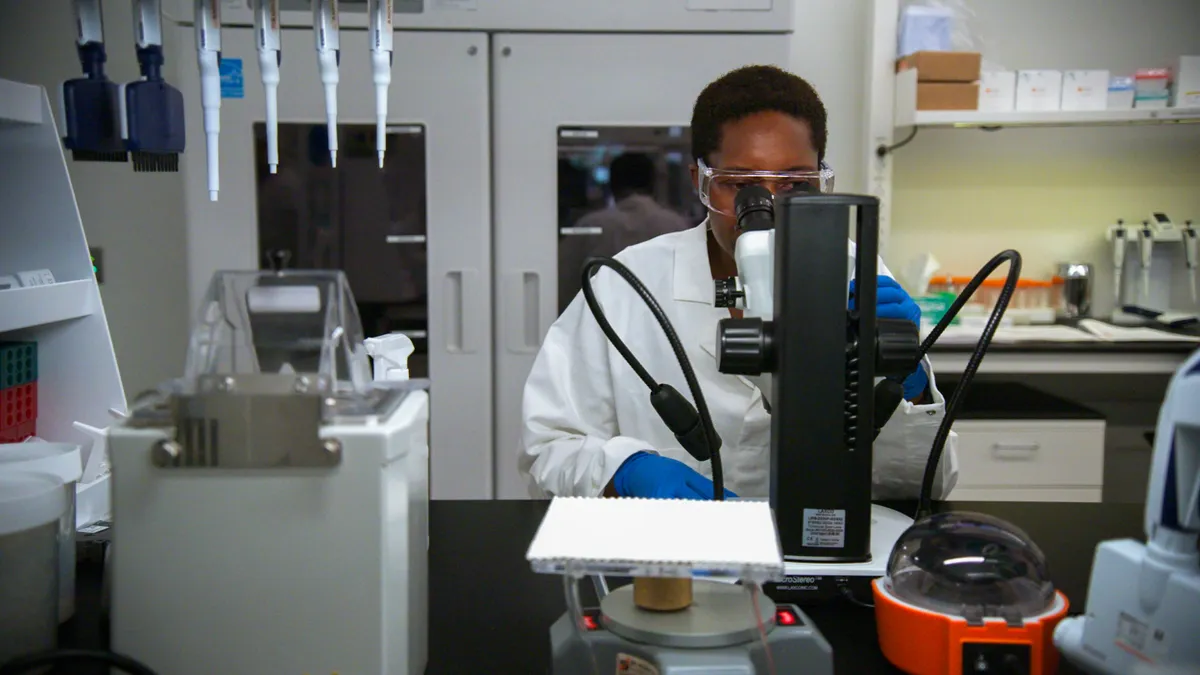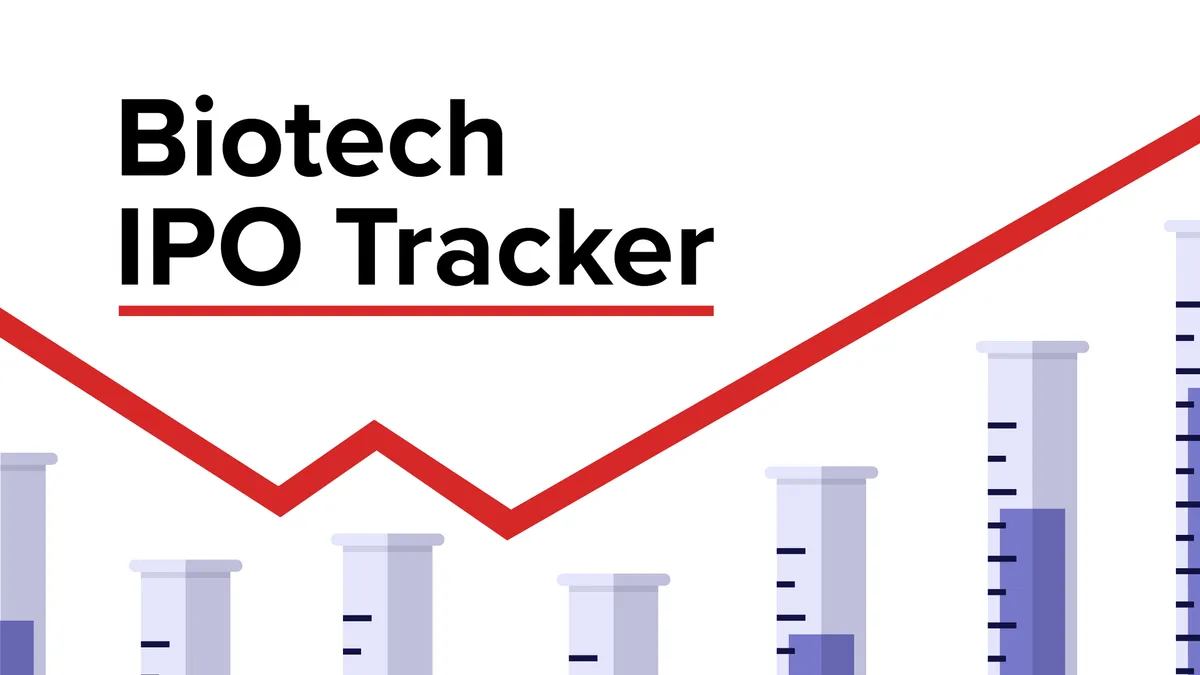Mathai Mammen has heard a lot of opinions about where he should work next.
Until last August, the well-known pharmaceutical executive ran research and development at Johnson & Johnson, the world’s largest drugmaker. On Thursday, he was named the next CEO of FogPharma, an eight-year old biotechnology company attempting to develop a new class of medicines.
“You can imagine there was a fair bit of inbound on what others [thought] would be good,” said Mammen, a physician and chemist who joined J&J in 2017 after two decades at Theravance Biopharma, a company he co-founded, and a brief stint at Merck & Co.
“I looked long and hard at many situations. And this was by far the one that resonated most,” added Mammen, who was reportedly a leading candidate for the top seat at Biogen.
While Mammen’s choice might be unexpected, he describes Fog as the rare company with drugmaking technology capable of yielding multiple products for disease targets that are currently out of researchers’ reach. It has raised nearly $400 million since being founded in 2015 by Greg Verdine, a serial biotech entrepreneur behind more than a half dozen other drug companies. (WeiQing Zhou, Fog’s chief operating officer, and two others were co-founders.)
Verdine and Mammen — who have known each other since the 1990s — started talking seriously about Mammen coming on as Fog’s next CEO in November, when Fog raised a Series D venture funding round.
“[Fog board member] Rick Klausner, Greg Verdine and I spoke a lot in and around that period around what a next chapter would look like,” said Mammen. “I wanted to be sure that the next chapter was very ambitious, was still consistent with a company that was being built to last.”
Fog’s science centers on a type of drug it has dubbed “Helicon” polypeptides, short chains of amino acids twisted into a specific helix shape. This approach, Fog claims, gives its drug candidates advantages typically associated with protein drugs in a package more akin to a small molecule compound.
The company plans to soon begin clinical testing of its first drug, a candidate dubbed FOG-001 that’s designed to block a cancer drug target known as beta-catenin.
According to Verdine, this protein and its associated gene were in Fog’s sights from the start. “When we started the company, we said we’re going to drug beta-catenin,” said Verdine in a January interview with BioPharma Dive. “Beta-catenin is, hiding in plain sight, a monster oncogene.”
Fog estimates abnormal cellular signaling involving beta-catenin and another, related cell pathway called Wnt occurs in at least a fifth of human cancers, making FOG-001 potentially relevant for several types of tumors.
Alongside its lead candidate, Fog has also disclosed five other programs in various preclinical stages that are aimed at other cancer drug targets, including the RAS oncogene.
“These medicines are not just things that are easily created by some other technology, but that Fog does a bit better,” said Mammen. “Basically, you couldn't get to many of these destinations any other way than [by] what Fog currently does.”
Mammen has a broader perspective than most in evaluating a biotech’s would-be medicines, having trawled through hundreds of drug company presentations and pipelines while hunting for acquisitions and licensing opportunities at J&J.
At Fog, though, Mammen will have his first chance at being chief executive of a biotech — an opportunity he said he sought out specifically after a career overseeing R&D at Theravance, Merck and J&J.
“One of things I was looking for before my career was over was to run a company in full, to be CEO,” he said. “The reason I wanted to do that is I do have a dream of what a company should look like.”
He’ll have a runway to act on that dream, as Fog has enough cash to last until mid-2025. A strong balance sheet is particularly important now for private biotechs, which face a more difficult time raising funds than in previous years.

For Verdine, who currently serves as CEO at Fog and another company he founded, LifeMine Therapeutics, the transition comes at the right time in Fog’s development.
“Fog is ... ready for a new CEO and probably needs one with a different skill set than me,” Verdine said in January, when he hinted that Fog was interviewing candidates. “LifeMine is a year earlier and it needs me more.”
Mammen will start as an adviser to Fog immediately, and take over as CEO in June. He’ll also serve as chair of Fog’s board, with Verdine transitioning to the vice chair role.
Verdine won’t be far, though. LifeMine has its offices in the same building on the outskirts of Cambridge, Massachusetts as Fog.
Ben Fidler contributed reporting























